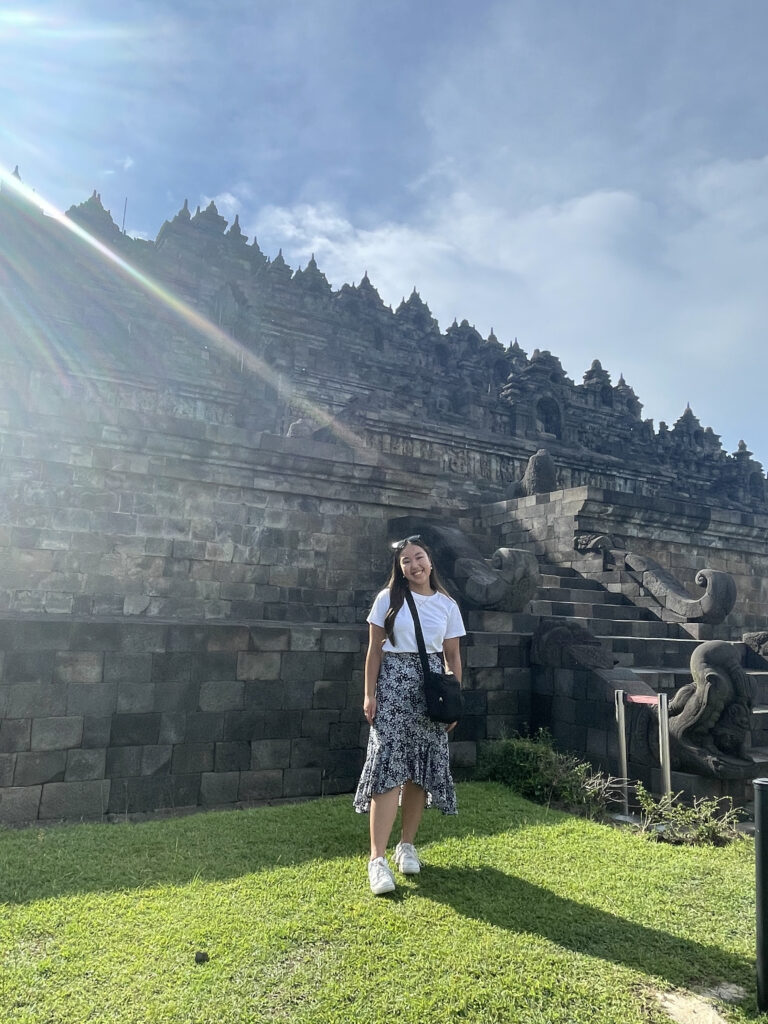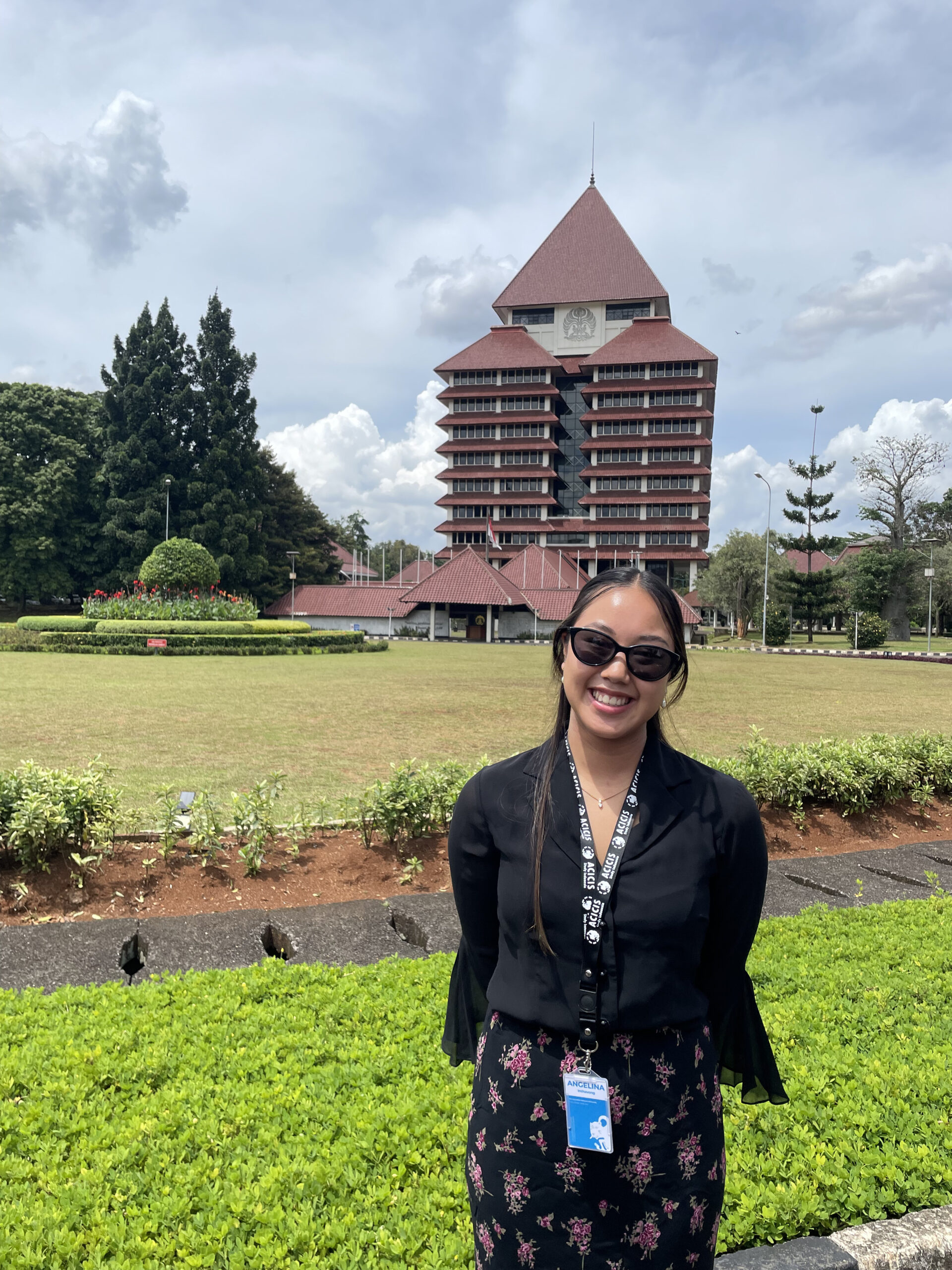Angelina Inthavong completed the Public Health Study Tour in 2023 as part of her degree at the Australian National University (ANU). She was supported by a New Colombo Plan grant.
Angelina Inthavong is a Doctor of Medicine and Surgery candidate at the Australian National University. She juggles paid work as a research assistant at ANU’s National Centre for Epidemiology and Population Health, chairs a national grassroots campaign for universal access to contraception, represents Plan International on the International Sexual and Reproductive Health and Rights Consortium, and sits on the boards of the Australian Women’s Health Alliance and Sexual Health and Family Planning ACT. Her week is full, and her motivation is clear: “Active listening is a main one. You can never go wrong with it,” she says.
In January 2023, the Acicis Public Health Study Tour deepened her understanding of how different settings shape health outcomes. Two weeks in Indonesia offered a first-hand look at decentralised health delivery in Indonesia. “We had presentations from government officials and academics,” she recalls, but the most powerful lessons came in the field: weaving through eight-lane roads, observing a community health centre weigh infants in plastic shopping bags, and touring a mental-health facility where drug users are treated under criminal statutes. “It was so funny but also very resourceful,” she says of the improvised baby scales, a reminder that effective care does not always rely on expensive equipment.
Those impressions now guide her tobacco-control research. Indonesian billboards that once advertised cigarettes to children are a stark counterpoint to Australia’s plain-packaging laws. “The marketing there is very aggressive,” she notes, and studying both contexts helps her test stronger policy options at home. The tour also sharpened her sense of social determinants: “Seeing how different environments shape health, and how Indonesia’s geography affects its health system, translates directly to regional and rural Australia.”
Angelina’s advocacy for equitable contraception access draws on the tour’s community-centred approach. Running a national campaign means coordinating volunteers with diverse lived experience, a skill she honed by asking questions “in a way that’s open-minded and won’t culturally offend”. Her board work benefits from the same respect for local voices.
Asked what surprised her in Indonesia, she cites scale. “I didn’t really understand what a megacity was until we landed in Jakarta,” she says. The sheer volume of traffic injuries and air-quality issues underscored the urgency of preventive public health. Yet the tour also showed how small interventions can yield big wins.

For students considering Acicis, Angelina’s advice is: “Say yes to everything, as long as it is safe.” Growth, she believes, sits just on the edge of comfort. “You should always do something that makes you a little bit terrified because at the end of the day you’ll grow so much more.”
The perspectives she gained in Indonesia continue to inform how she approaches her many roles. Rather than simply adding a line to her résumé, the study tour became her blueprint for turning classroom theory into practical impact—from analysing data in a Canberra lab to steering a national campaign and, one day, caring for patients in a rural clinic.



